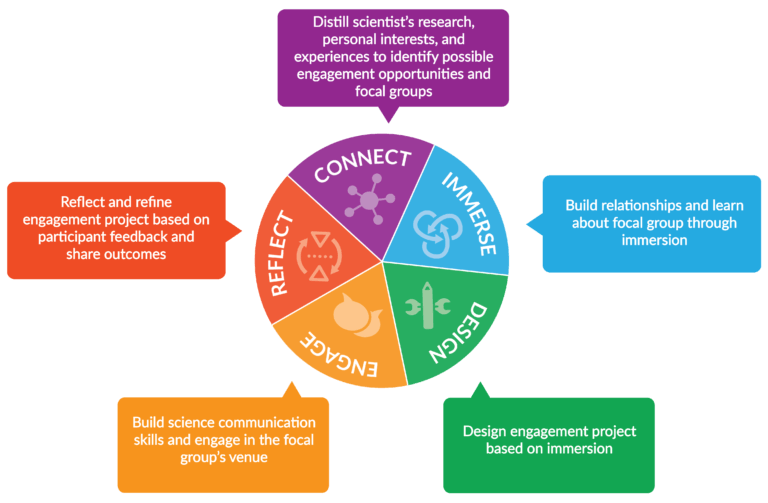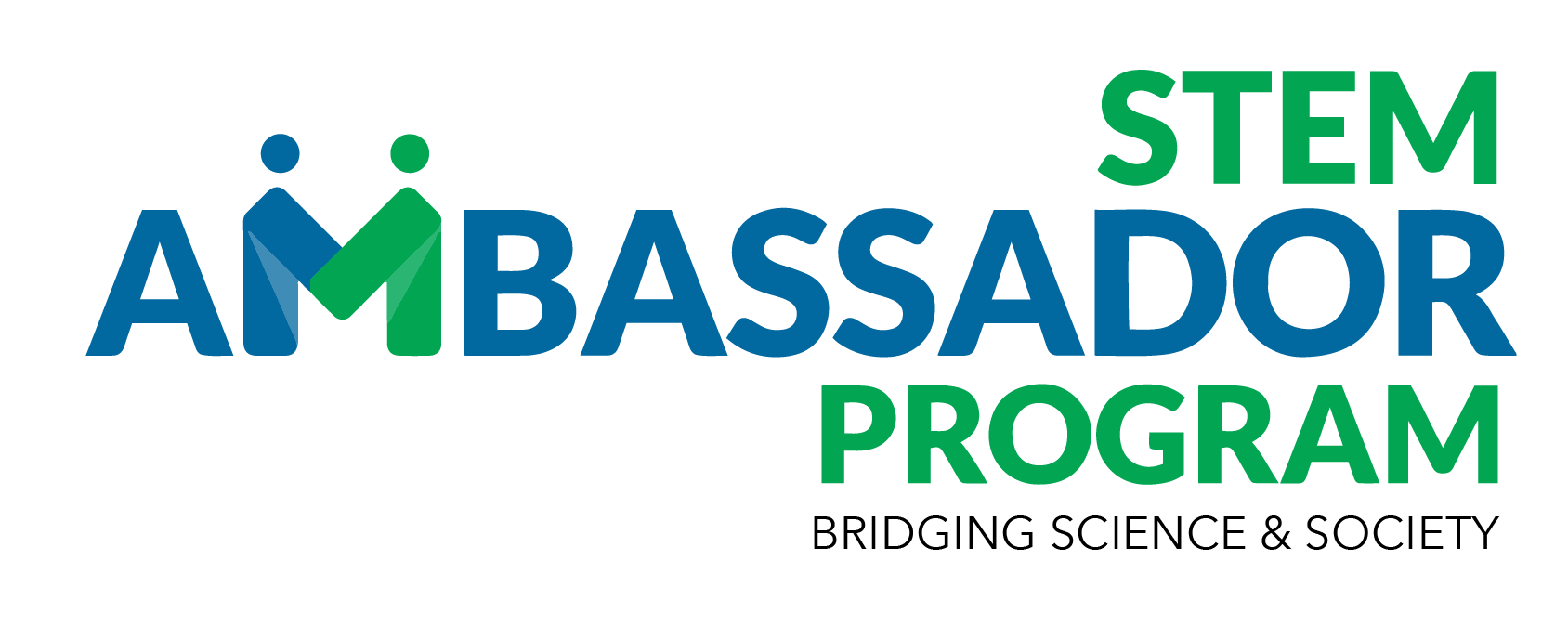Mission
Vision
Values
The values that guide our activities and decisions include:
Inclusivity: We are committed to making science accessible to all by breaking down barriers to scientific knowledge and empowering communities that may face challenges in accessing traditional modes of science education.
Community-Centric Engagement: Our approach prioritizes in-place engagement, ensuring that scientific outreach is tailored to the needs, interests, and circumstances of the focal group.
Empowerment: We empower STEM Ambassadors to act as catalysts for change by providing them with the tools and training needed to build relationships and effectively communicate scientific concepts.
Collaborative Innovation: STEMAP opens portals for the exchange of ideas by facilitating connections between scientists and the public where both parties benefit from an ongoing exchange of knowledge and experiences, fostering a culture of continuous learning and growth.

Science requires diverse ideas and perspectives to help address pressing environmental and societal challenges. Informal science education venues, such as museums and science centers, play a critical role in bringing science to the public. However, variations in health, mobility, language, and other factors prevent some people from deliberately engaging with science in these settings.
STEMAP is a training program designed to be a catalyst for innovation, fostering a mutual exchange between scientists and communities and creating room for broader and more diverse perspectives in science. STEMAP is dedicated to cultivating a community of scientists, known as STEM Ambassadors, who are passionate about bridging the gap between scientific innovation and the broader public. STEMAP was developed with support from the National Science Foundation (NSF Awards DRL-1514494, 1906408).
STEMAP is grounded in the Impact Identity Framework published by Julie Risien and Martin Storksdieck in 2018 (1). Under this framework, scientists integrate their research, personal interests, skills, and social connections to identify the societal impact they wish to have as a scientist and member of society. STEMAP applies practices derived from three validated informal science education models to support scientists in developing their impact identity, designing engagement activities, and carrying out engagement (2). Click here for more information on training.
Participating scientists (referred to as “STEM Ambassadors”) link their research, personal interests, experiences, and desired social impacts to a particular focal community group, or a group gathered around shared interests, hobbies, circumstances, or experiences that resonate with the scientist. The program consists of five modules (shown above), which a cohort of Ambassadors completes over the course of three months. Scientists engage their focal group in-place, providing greater access to science for those who do not or cannot visit science education venues and reinforcing the connection of science to everyday life.
To read about Ambassadors’ experiences with the program, check out the Reflection articles page.
STEMAP is supported in part by funding from NEXUS and the UofU’s Office of the Vice President for Research.
_____________________
(1) Risien, J. Storksdieck, M. 2018. Unveiling Impact Identities: A Path for Connecting Science and Society. Integrative and Comparative Biology. 58: 58-66.
(2) Design Thinking, Portal to the Public, Research Ambassador Program


